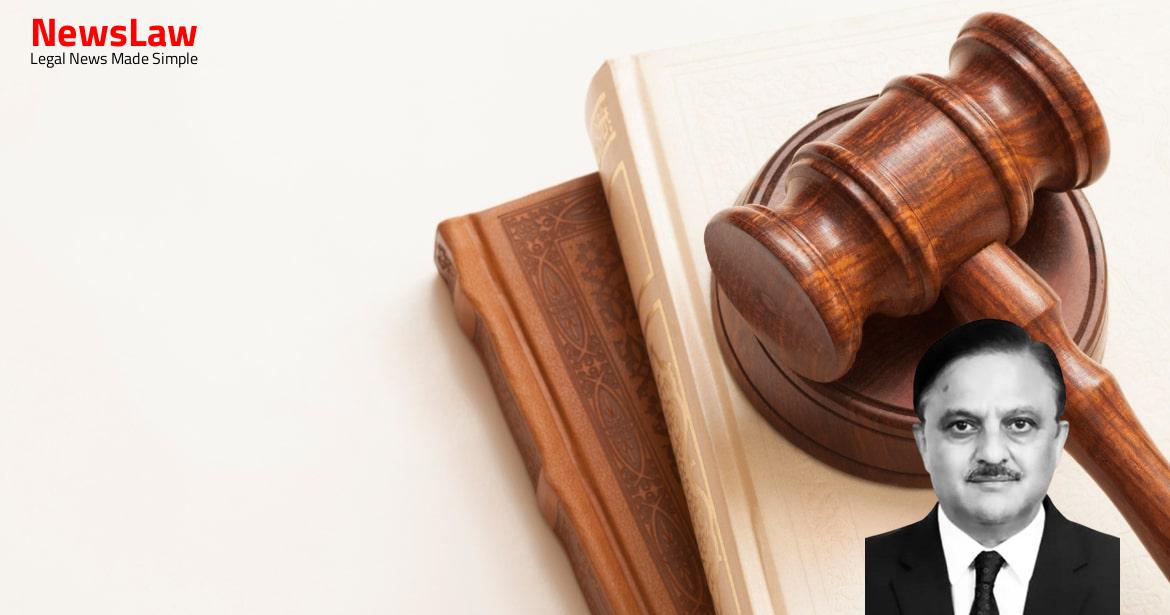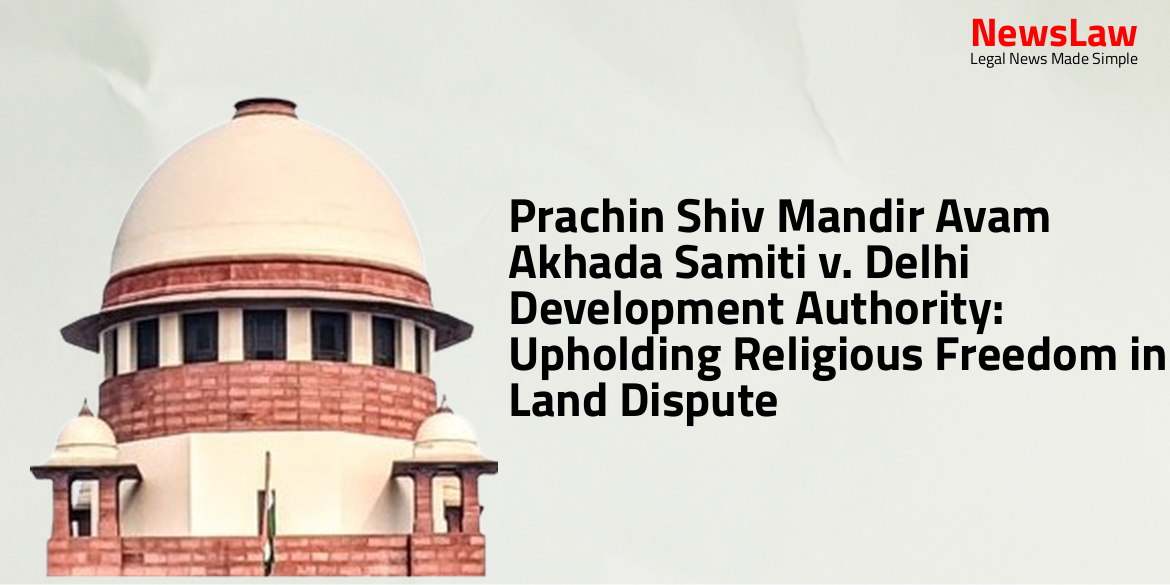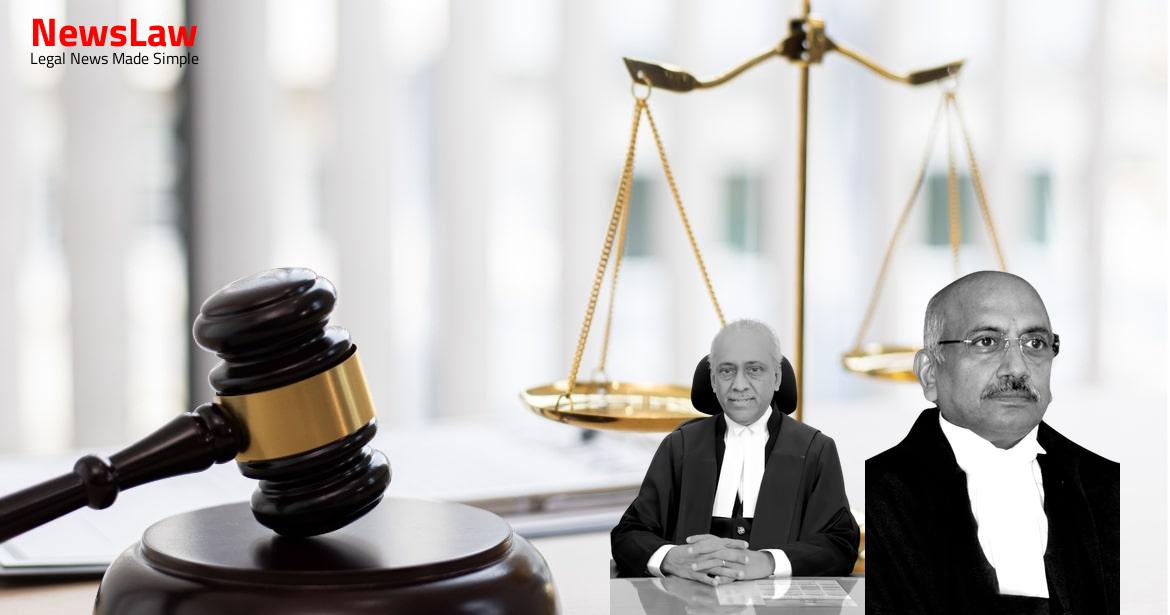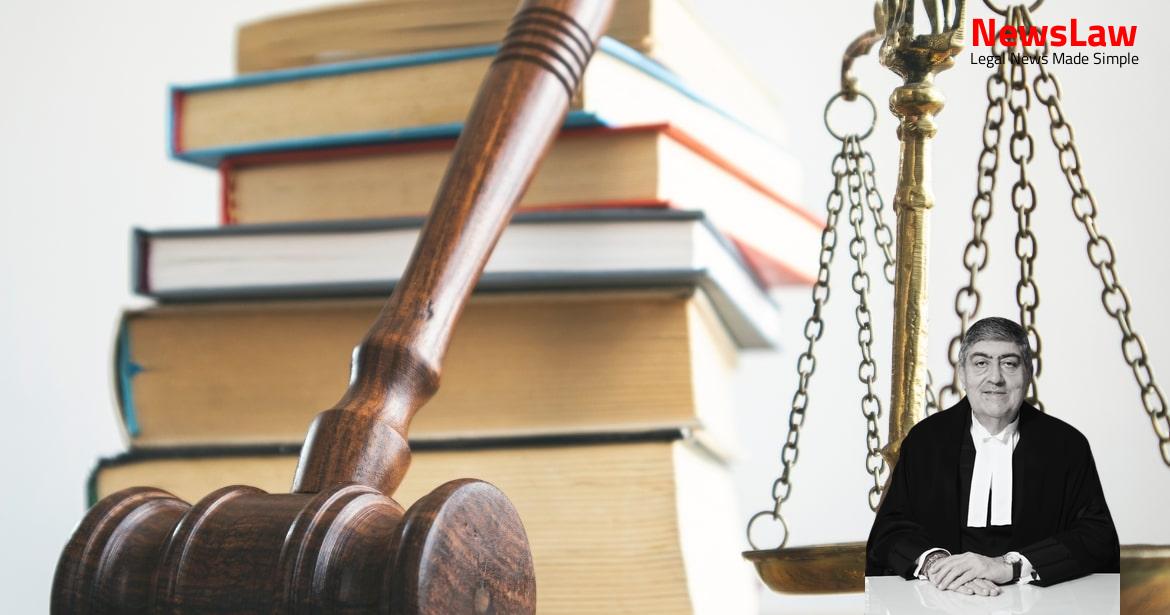In a significant legal ruling, the Supreme Court of India has delivered a judgment regarding the ownership of the Kamakala Kameshwarar Temple property. The case involved a dispute between the trustees of the temple and the management regarding the nature of the property in question. The judgment sheds light on the intricate details of the Trust Deed, Compromise Decree, and conveyance deeds, determining whether the property is a trust property or under absolute ownership. This ruling will have a lasting impact on the management and maintenance of the temple property.
Facts
- The Appellant-Defendant filed an application in 1954 seeking hereditary trusteeship in the Kamakala Kameshwarar Temple, but the claim was dismissed in 1962.
- Mr. T. Lakshmidoss and Mr. T. Venkataprasad were declared insolvents in 1914, leading to possession of their properties by the Official Assignee.
- A Decree dated 26.11.1929 specified the nature of the property in question and called for its division between the insolvents.
- The properties, including the suit property and the temple, were subject to various conveyance deeds and agreements with creditors and trustees.
- A series of legal proceedings ensued, including suits and appeals, to determine ownership and trusteeship of the properties.
- The Trust Deed dated 12.12.1917 appointed three trustees, and subsequent legal actions saw the involvement of these trustees.
- A Compromise Decree dated 26.11.1929 decreed in favor of the creditors, leading to distribution of properties among the parties.
- The Appellant-Defendant’s attempts to claim hereditary trusteeship and assert ownership of the properties were consistently challenged and dismissed in multiple legal proceedings.
- The High Court noted that the Appellant-Defendant forfeited his position as a trustee over the suit property and the Temple by misappropriating funds for personal use instead of the restricted purpose.
- The Court required the Appellant-Defendant to hand over possession of the suit property to the Temple.
- The Division Bench adjudged the suit property as belonging to the trust after perusal of documents.
- The Appellant-Defendant’s appeal to the Division Bench was dismissed, confirming the suit property as a trust property where he only held possession as a trustee.
- An appeal by Temple was allowed, setting aside the decree in favor of the Appellant-Defendant and declaring the Temple as a public temple.
- The Appellant-Defendant appealed to this Court against the judgment of the Division Bench of the Madras High Court.
- The Single Judge of the Madras High Court held that the suit property is a trust property based on the Compromise Decree and conveyance deeds.
- The High Court noted that the suit property was conveyed to the Appellant-Defendant for the maintenance and upkeep of the Temple.
- The Division Bench rejected the argument of res judicata, stating that previous proceedings regarding an adjacent property did not affect the nature of the current proceedings for the suit property.
Also Read: Cheque Dishonor Case: Legal Battle Between Original Name and Mr. Mallikarjun
Arguments
- Appellant-Defendant asserts that no modifications were made to the property to convert it into a trust property.
- No trust deed was executed, and the Conveyance Deed clearly identifies the Appellant-Defendant as the transferee with absolute ownership.
- The Compromise Decree of 26.11.1929 supports the Appellant-Defendant’s claim that the property is not a trust property but under his absolute ownership.
- Appellant-Defendant argues that there were no pleadings or evidence presented by the Respondent-Plaintiff claiming the property as a trust property.
- According to the Appellant-Defendant, the Trust Deed of 1917 and the Conveyance Deed did not designate the spiritual head of Guru Manicka Prabhu Temple as a trustee.
- Appellant-Defendant states that the responsibility for maintaining the temples does not restrict the ownership of the property.
- The conditions mentioned in the Trust Deed and Conveyance Deed are considered void under Sections 10 and 11 of the Transfer of Property Act 1882.
- The property does not revert after a specified period as per Appellant-Defendant’s argument.
- The suit filed by the Respondent-Plaintiff did not comply with the requirements of Section 92 of the Code of Civil Procedure 1908, which deals with suits against trusts.
- The Appellant-Defendant contends that the suit property was never intended to be viewed as a trust property by the Respondent-Plaintiff.
- The Respondent-Plaintiff argues that the present proceedings are barred by res judicata because the suit property and Respondent-Plaintiff-Temple are identical to the properties in the Compromise Decree of 26.11.1929.
- The Appellant-Defendant initially claimed title as a hereditary trustee but later asserted that the Respondent-Plaintiff-Temple is a private entity, which has been addressed in previous proceedings.
- The Respondent-Plaintiff states that after the HR & CE took possession of the temple from the Appellant-Defendant in 1946, it has maintained it as a public temple, under HR & CE stewardship.
- The Respondent-Plaintiff argues that due to the temple being a declared public institution, it should remain under their management for the protection of public worship and proper maintenance.
- The challenge regarding title over the suit property revolves around the interpretation of terms in the Compromise Decree of 26.11.1929, with the Appellant-Defendant claiming absolute ownership and the Respondent-Plaintiff asserting it as trust property.
Analysis
- The properties mentioned in Schedules ‘A’ and ‘C’ could not be alienated or proceeded against by creditors.
- Transfer deeds were executed by the Official Assignee and others in accordance with the decree.
- Paragraphs 01 to 04, 11, and 13 of the Compromise Decree dated 26.11.1929 were analyzed comprehensively.
- The head of the Guru Manicka Prabhu Temple could hold the suit property as a trustee only.
- The application of the principle of res judicata was rejected due to the distinct nature of claims in the proceedings.
- A Power of Attorney was to be executed in favor of the creditor’s company to manage the properties for specific purposes.
- Conveyance deeds were required to be executed for properties as specified in the decree.
- Income from Schedule ‘A’ and ‘B’ properties could not be alienated by specific individuals or creditors.
- Properties in Schedule ‘A’ and ‘C’ continued to be part of the trust, except for Schedule ‘B’ properties.
- Upon the death of Parvati Bai, the premises and income thereof shall vest in the Guru of the temple for maintenance and upkeep.
- The remaining properties in the trust deed, specifically listed in schedule ‘B’, are exempt from the trust and belong to the 7th and 8th defendants.
- The 2nd and 3rd defendants will convey properties listed in schedule ‘A’ to the spiritual head of the Guru Manicka Prabhu Temple.
- The 2nd, 7th, and 8th defendants will convey the building and land of the Kamakala Kameswarar Temple to its spiritual head.
- The income from properties in schedule ‘A’ will be used for maintenance and cannot be alienated or used by the defendants or Parvati Bai.
- The nature of the Plaintiff-Temple does not impact the obligations outlined in the Compromise Civil Appeal No 8374 of 2024 Decree dated 26.11.1926.
- The obligations mentioned in the decree apply to the suit scheduled property regardless of the nature of the temple.
- The challenge raised in previous proceedings is deemed invalid in light of this understanding.
Decision
- The Division Bench of the Madras High Court judgment is agreed upon
- The present Appeal lacks merit and is dismissed
- No order as to costs has been issued
- Pending applications, if any, are disposed of
Case Title: SIDDARAJA MANICKA PRABHU TEMPLE Vs. THE IDOL OF ARULMIGHU KAMAKALA KAMESHWARAR TEMPLE (2024 INSC 695)
Case Number: C.A. No.-008374-008374 – 2024



